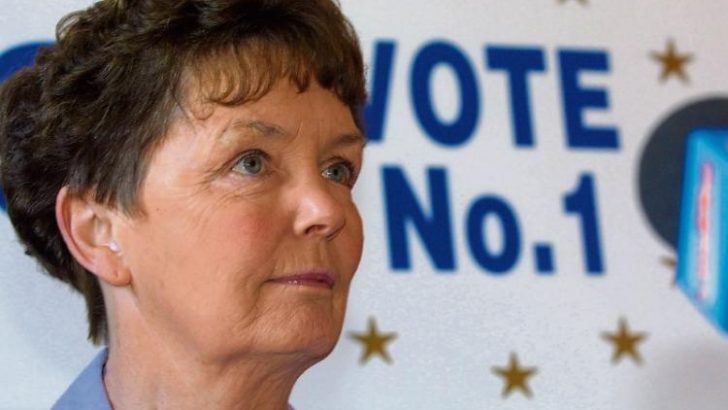I was sorry to learn of the death of Limerick’s Nora Bennis on February 11, aged 78. Nora had been a defender of a woman’s right to be a homemaker, founding the Irish Mothers Working at Home Association as well as leading the Solidarity Movement which supported family and Faith values.
She stood for election to the European Parliament – gaining some 18,000 first preference votes – and subsequently, for the general election three times, as a representative of the National Party, though unsuccessfully.
Nora’s father had been a veteran of the Easter Rising of 1916, and the family had always had strong links with the GAA, notably through her husband Gerry Bennis. She represented a gentle strain of the Irish tradition of Faith and fatherland, and of wider historical Christian values.
I met and interviewed Nora Bennis back in the 1990s when she was active in several campaigns and what struck me was that she simply seemed a very kind, nice person. She was devoted to her family – her husband, three daughters and the son that she adopted and cared for deeply. And if she failed in politics, which, in the end she did, perhaps it was because she was too nice. Her values were held with sincerity and commitment, but she probably lacked the toughness required to carry a campaign into a political dimension.
Personalities
I’d seen personalities like Margaret Thatcher and Mary Whitehouse up close, and their defining characteristics wasn’t just conviction, but an armour-plated hard streak at the core.
Feminists claim that if a woman is to succeed, she has to be more ambitious, more ruthless, more competitive than a man: it’s not always true, but many women who do succeed as leaders have that adamantine, tough element. Nora struck me as a softly feminine person who perhaps wasn’t as egotistical and domineering as people sometimes need to be in the political arena.
Perhaps she also made the strategic error of focusing on too many diffused campaigns. Divorce, abortion and mothers as home-makers can be linked in a system of values, but it’s probably more effective to concentrate on one identifiable issue which can make a difference.
A woman’s entitlement to be a full-time homemaker is still in play, when Article 41.2 of the Constitution becomes the subject of a referendum. Many people, I believe, recognise that the homemaker and carer contributes a great deal to the common good and the State should not efface that fact; Nora Bennis’s contribution to this recognition is surely part of her legacy.
***
Go, Gurteen!
It’s great to see Gurteen, Co. Sligo, running a robust campaign to retain its vital post office. An Post promised it wouldn’t close post offices in any community with a population over 500; Fiona Tansey of Gurteen has established that there is now a population of 512, so An Post is going against its own rules and should be held accountable. Best of luck to Gurteen!
***
Interesting take on a ‘real’ family
As I have previously observed, American culture has always had a positive attitude towards adoption. America has never stigmatised adoption as some older societies have done in the past – including ours – by not rating adopted kids on a par with ‘blood’ family.
A new movie just out, Instant Family, is a warm-hearted (if sometimes schmaltzy) narrative on the theme of fostering and adoption, and the caring and supportive way that American agencies encourage couples – and single people – to foster a child, or children, with a view to adopting.
Ellie (Rose Byrne) and Pete (Mark Wahlberg) are a smart young couple with no children of their own, who more by chance than by plan find themselves fostering three Latino kids – a teenager and two younger siblings. They go through all the hoops of anger, rebellion and tantrums from the kids, and then an emotional conflict when it seems that the birth mother – in jail with associated drug problems – will come back into the children’s lives, and the follow-on adoption won’t go through.
This territory has been explored before and the tug-of-love scenario sure tugs at your heartstrings. But what the film – based on the experiences of the director Seán Anders – shows is that parental love is something that grows, rather than instantly appears. And although there is sympathy – or perhaps pity – for the birth mother’s circumstances, the storyline favours the adopters as the ‘real’ family for these needy children. Interesting.


 Mary Kenny
Mary Kenny Nora Bennis
Nora Bennis 